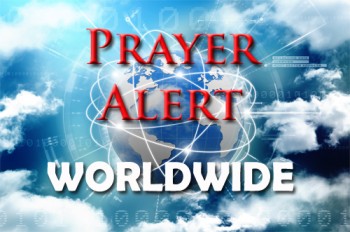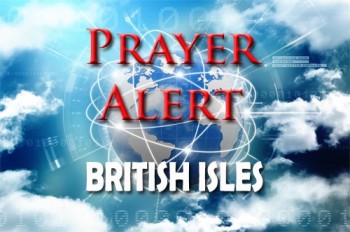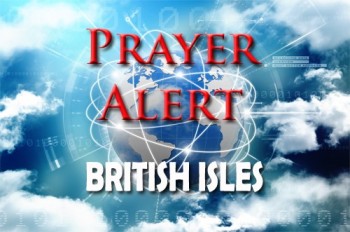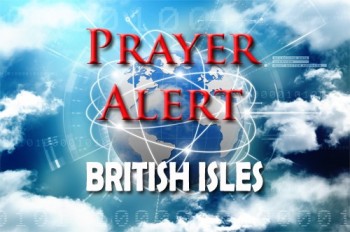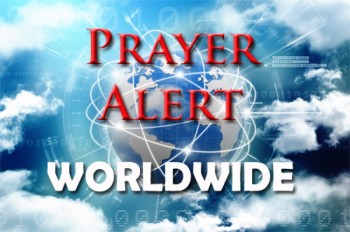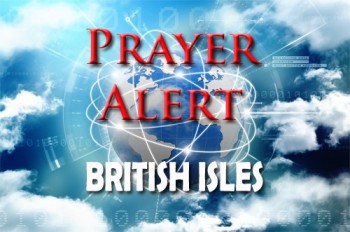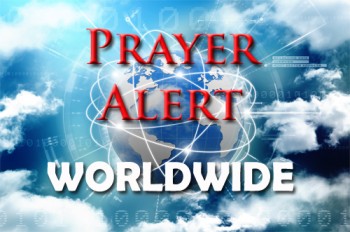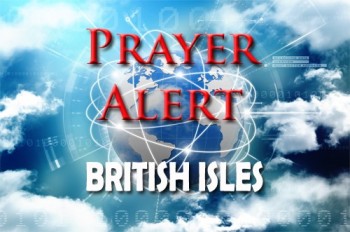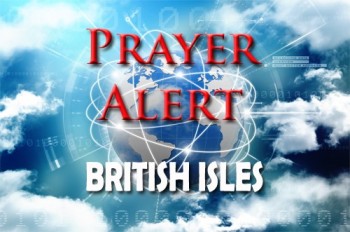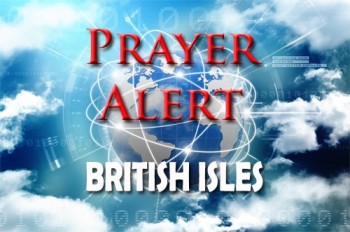Displaying items by tag: poverty
Lebanon: worsening crisis
Lebanon has failed again to form a new government. President Michel Aoun wants help from other countries to overcome the deadlock. There is economic despair as political instability drives the currency down. As the currency dips further, the minimum wage sinks below that of third-world countries. It is unbelievable how little people are earning now. They are stuck in a vicious circle, with no end in sight. Each time the currency loses value, prices go up, and people can buy fewer daily essentials. A bottle of milk was 3,000 Lebanese lira, now it’s 8,000. But that same bottle of milk bought with US dollars is less than 50 cents. It becomes ¼ of the price for people with dollars, but the poor people pay over double the price. As the crisis worsens, people have nowhere to put their hope, so they are starting to put their hope in Christ.
Christmas unwelcome guest
As we prepare for a different Christmas, thousands of families will be carrying the mental exhaustion of an unwelcome guest - debt. Debt erodes confidence and brings a whole host of stresses, and strains this festive season. Furlough, income reduction, job losses have all taken their toll. The recent collapse of Debenhams and Arcadia put a further 25,000 jobs at risk, on top of the thousands of jobs already hanging by a thread. Our poorest communities are hit hardest, with little or no savings to fall back on, and are unable to cope with the income shocks that this year has brought. Heating or eating is a brutal choice for many families. Pray that those struggling with financial problems and feeling isolated will realise that they are not alone and there is no shame in needing debt advice. May those needing such advice be put in touch with the agencies who are able to support them.
Free school meals a biblical principle
Steve Chalke has urged the Government to reverse its decision not to extend the free school meals over the holidays until at least Easter. ‘If we believe that we have to provide these children with free school meals, because otherwise they lack the nutrition to be able to grow and thrive and study and succeed during school term times; do we imagine that they can exist on thin air through the six weeks of the summer, or the weeks of Christmas, Easter and half terms? We need to provide a steady ongoing care.’ Currently businesses, local authorities, and community groups have set up to provide thousands of free meals for children in need.
Church: ‘expand free school meals’
The Archbishop of Canterbury and the Bishop of Durham have asked the Government to expand free school meals over school holidays as more families face hardship due to the pandemic. They said free school meals should be available to all children in families on universal credit and that the scheme should cover holidays. They also want funding to help schools that are supporting poorer families through services like breakfast clubs. They said, ‘All schools must have the appropriate resources to be able to address issues of child hunger and poverty and expand their role as places of security for children who are at risk, whilst maintaining safety at school. Outdoor play, exercise and access to nature are vital to healthy learning. Helping schools ensure outside activities continue will aid mental as well as physical health.’
Global pastors face destitution as tithes dry up in Covid crisis
Pastors around the world are facing destitution and even starvation because of the devastating impact of Covid on church tithes. Churches in countries that rely on cash tithes are forced to close their doors, Many pastors are struggling to feed themselves, let alone give anything to those turning to them for help. Wage earners are unemployed or unable to work due to the pandemic. In India, finding alternative sources of income has been virtually impossible for some of the pastors. Relief distributions are carried out by local administrations but Christians are ignored for being Christians. Sub-Saharan Africa reported similar situations. Pastor Adane in rural Ethiopia said Covid had affected all church income streams, making it impossible to pay staff. He said, ‘Because of Covid-19, the church is in great trouble’.
Pandemic legacy: serious household debt
Data from the Bank of England released on 1 September show an increase in mortgage and household borrowing. StepChange debt charity says this may point to the financial pressures many households face, which will crystallise into serious debt problems when unemployment support and payment holidays end. Since May, StepChange has published a monthly breakdown of trends to understand how the pandemic is affecting household debt, and to focus on the best ways of helping people. In July it gave advice to 14,000 clients, but this number is artificially suppressed by government support mechanisms still in place. However, a notable feature in July is the trend toward greater unemployment worries. Not only has the proportion of unemployed clients increased, but searches about redundancy on the charity's website saw a massive 1,800% increase in July compared with June. StepChange said, ‘It’s absolutely vital that we see ongoing support to help people get through the next period, whether they are in employment or not, if we are to avoid entrenching problem debt as a long-term legacy of the pandemic.’
Egypt: women struggling to survive pandemic
Maria, an Egyptian widow, was in tears when telling a local ministry leader that she had lost her job as a housecleaner due to coronavirus lockdown. She supports seven family members, including a daughter with two infants who is separated from her drug-addicted husband and a married son with two children who has lost his job and home due to coronavirus. She sold her kitchen appliances to meet their basic needs. Many widowed women in Egypt have lost their jobs to the pandemic and have no other sources of income, as the government has also suspended disbursement of pensions due to the crowds gathering at offices. Most widows are without a fixed monthly income or a fixed pension. Some have coronavirus, and some have lost a family member to it. Christian Aid has created WhatsApp groups for women and children and supports them spiritually by making prayer times and sharing sermons and songs.
Survey revels higher stress levels
A report by the Child Poverty Action Group stated a ‘significant deterioration’ in living conditions for low-income families caused by the coronavirus. 80% of the 285 families surveyed (those with children eligible for free school meals) are in a worse position, and 48% had a debt problem that was new or worse than before. In all, 83% found the pandemic has affected their ability to pay for food, with 76% struggling to pay for utilities. The report tells of problems with how benefits have been distributed - not covering basic living costs, delays and inconsistencies in delivery, and a lack of knowledge about where to get advice or support. Half of the families reported physical or mental health problems caused by money worries. The group recommends a £10 a week increased child benefit, the extension of free school meals to all receiving universal credit or working tax credit, and abolition of the benefit cap to those whose employment is disrupted by the crisis.
Private renting parents fear ‘Covid-homelessness’
Nearly one in five private renting parents are now more concerned their family will become homeless as a result of the Covid crisis, new research from Shelter shows (see). As the country moves out of lockdown, the chronic lack of social housing has left struggling families with few options to escape the insecurity of private renting. A third of parents who rent from private landlords are more negative about their long-term housing situation. Shelter reported that 49,000 have resorted to using foodbanks since lockdown and cut back on food to help pay rent; 550,000 took on debt (overdrafts, credit cards, payday loans, borrowing from bank/family/friends) to help pay rent since lockdown. Pray for people in poverty to have a home they can afford. See also the next article, ‘Outdated Planning System’.
Scotland: charity's plea for school uniform grant
Scotland's schools have been given the go-ahead to reopen from 11 August. The Child Poverty Action Group, which supports low-income families, has called for more financial help for parents and carers in Scotland struggling to pay for school uniforms. Eligible pupils currently receive a £100 school clothing grant, with some primary school starters eligible for a further £250. The group said some parents faced ‘extraordinary financial pressure’, and the grants were a good way of getting additional support directly to families. It is urging local authorities and the government to work together to increase the value of the school clothing grants or provide additional grants this year, in recognition of the unexpected extra financial pressures that families face.
